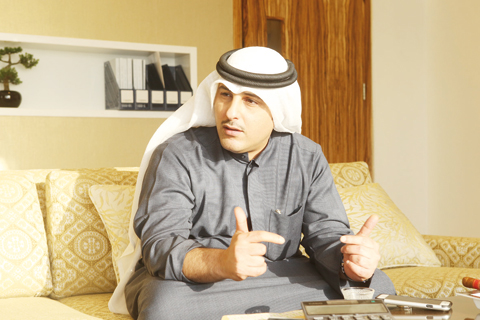
KUWAIT: Head of the National Assembly Priorities Committee MP Ahmad Al-Fadhl said yesterday that the amendments in the labor law in the private sector which calls to raise annual leave to 35 days has some problems and is not likely to be debated in the coming Assembly session next week. Fadhl said that the proposed amendments, which were passed by the Assembly last month in the first reading, needs to create a balance between giving more benefits to Kuwaitis employed in the private sector and not adding new burdens on Kuwaiti businessmen.
He said that there is a problem in the retroactive effect attached to the amendment, adding that "we want to expand benefits for Kuwaiti employees by increasing the leave to 35 days but we do not want to add any burden on Kuwaiti businessmen". The government had voted in favor of the first reading of the law but later retracted and rejected the amendment saying that raising the annual leave from 30 days to 35 days adds a lot of burden on Kuwaiti businesses.
The amendments were proposed in a bid to make working in the private sector more attractive to Kuwaiti citizens, the overwhelming majority of whom prefers government jobs which provide much easier conditions and higher pay and benefits. The problem also is that only under 100,000 Kuwaitis are employed in the private sector against over 1.5 million expatriates who will benefit from any amendments to the labor law. The trade unions have insisted that the amendments should go through and should become a key part of the labor law.
Fadhl said that the Assembly is expected to debate a draft law for regulating the charity work in the country, adding that he objects to a provision in the law that stipulates a prison term for those who distort the image of charity. The Assembly will also debate a draft law on commercial cheating.
In another development, the Constitutional Court yesterday rejected a case disputing the constitutionality of a special law for the trial of ministers or former ministers. The court also called for continuing the trial of former Health Minister Ali Al-Obaidi and a number of former Health Ministry Assistant undersecretaries.
By B Izzak

